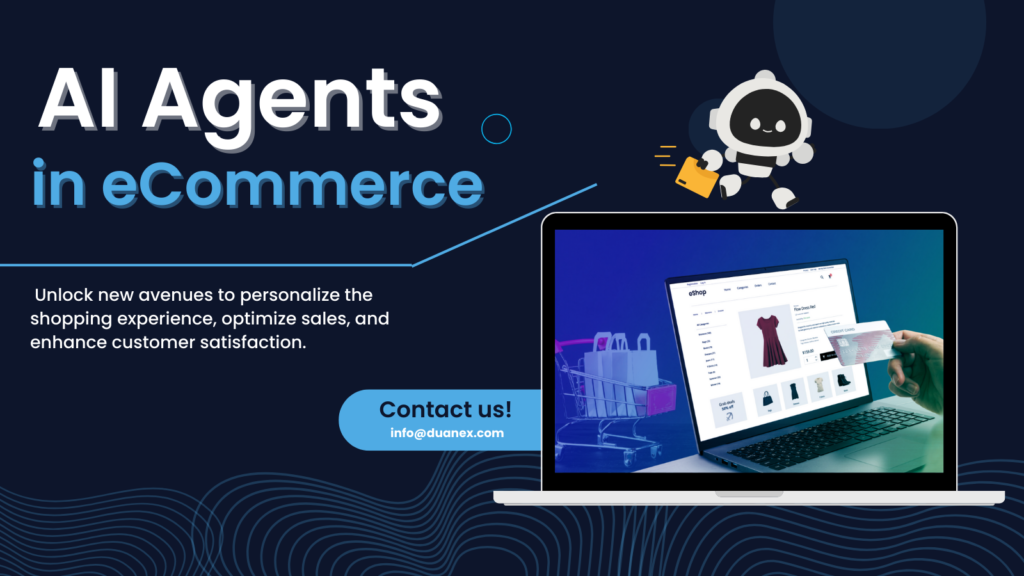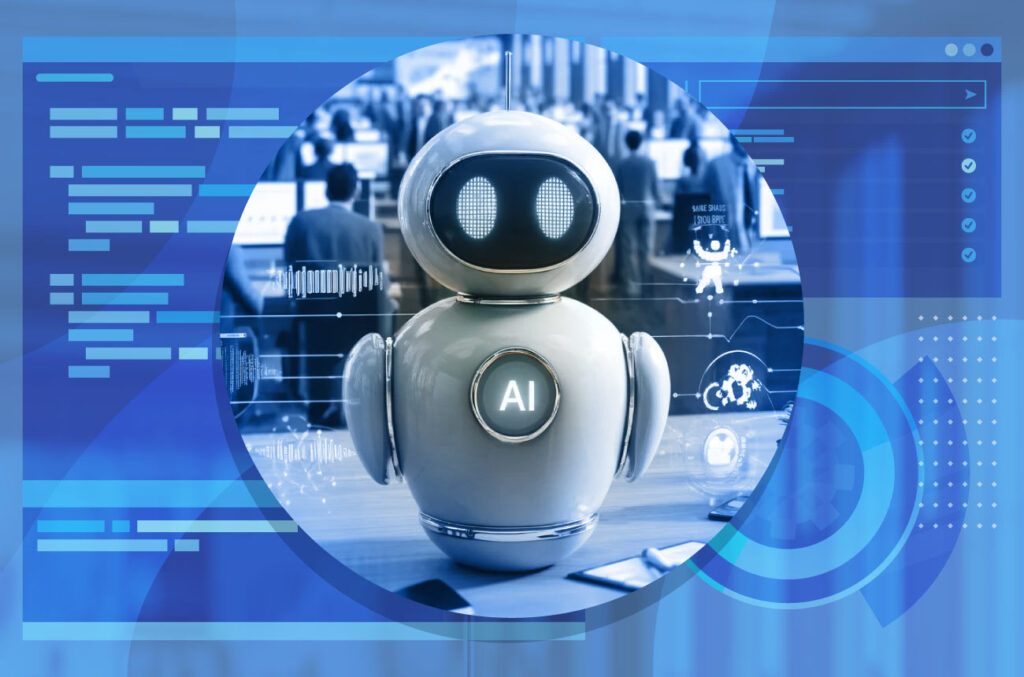How to Create a Transportation App: Features,
Price, and Implementation Steps
29 Aug 2023
18 min

CTO

Technical Writer
The e-commerce landscape has undergone a radical transformation over the past decade. With the advent of Artificial Intelligence (AI), online retailers have unlocked new avenues to personalize the shopping experience, optimize sales, and enhance customer satisfaction. Among the most promising applications of AI in this space are AI agents, which are revolutionizing how businesses interact with their customers and manage operations.
This article delves into the ways AI agents are reshaping e-commerce, focusing on three core areas: personalization, product recommendations, and customer service. We’ll explore how these advancements are driving growth, enhancing user experiences, and positioning companies to meet the evolving demands of today’s consumers.

Understanding Personalization Through AI Agents
Personalization is at the heart of successful e-commerce strategies. AI agents use machine learning algorithms, natural language processing (NLP), and behavioral analytics to tailor experiences based on individual user preferences. Unlike static segmentation methods of the past, AI-driven personalization adapts in real-time, ensuring every interaction feels unique and relevant.
Data-Driven Insights
AI agents collect and analyze vast amounts of data from various touchpoints, including browsing history, purchase behavior, and even social media interactions. This data enables e-commerce platforms to:
- Create personalized landing pages: AI tools for ecommerce can dynamically generate content for users based on their past interactions, increasing the likelihood of conversions.
- Offer targeted promotions: Discounts and offers are tailored to individual preferences, maximizing their appeal.
For example, Amazon’s recommendation engine—powered by AI—accounts for up to 35% of its total sales. It’s a testament to how personalization enhances engagement and drives revenue.
Dynamic Pricing Strategies
AI tools for ecommerce also enable dynamic pricing models, where prices fluctuate based on factors such as demand, competition, and user behavior. This strategy ensures customers feel they are receiving fair value while maximizing profits for businesses.

Product Recommendations: Beyond Basic Suggestions
Gone are the days of generic product recommendations. Today, AI agents employ sophisticated algorithms like collaborative filtering, content-based filtering, and hybrid models to deliver hyper-relevant suggestions. These systems predict what a customer might want based on their preferences and the behavior of similar users.
Context-Aware Recommendations
Context-awareness is a game-changer. AI agents analyze:
- Time of day: Recommending coffee in the morning or fitness gear in the New Year’s resolution period.
- Geolocation: Suggesting winter wear to users in colder climates while promoting beachwear to users in tropical regions.
- Seasonal trends: AI agents monitor trends in real-time to recommend products that align with seasonal preferences or current events.
Visual Search and Recommendation Systems
AI-powered visual search allows users to upload images and find similar products instantly. This feature caters to shoppers who know what they want but struggle to describe it verbally. It should be noted that AI tools for ecommerce further enhance this experience by suggesting complementary products, enabling seamless cross-selling and upselling.
The Role of Chatbots and Virtual Assistants
AI chatbots and virtual assistants have redefined customer service in e-commerce. Available 24/7, these AI agents handle a variety of tasks, such as:
- Answering FAQs: Providing instant responses to common queries.
- Order tracking: Keeping customers informed about their purchases.
- Problem resolution: Assisting with refunds, exchanges, or technical issues.
By reducing the reliance on human agents for repetitive tasks, businesses can allocate resources to more complex customer needs.
Sentiment Analysis for Better Communication
AI agents equipped with sentiment analysis tools can detect a customer’s emotional state through their text or voice interactions. This capability allows businesses to:- Escalate issues to human agents when necessary.
- Provide empathetic and contextually appropriate responses.
Multilingual Support
Global e-commerce requires catering to diverse linguistic audiences. AI agents equipped with NLP capabilities can interact with customers in multiple languages, breaking down communication barriers and broadening market reach.

AI Beyond the Front End: Operational Efficiencies
AI agents are not just improving customer-facing aspects of e-commerce; they’re also streamlining backend operations. From inventory management to supply chain optimization, AI plays a pivotal role in ensuring businesses run smoothly.Inventory Management
AI agents can predict stock requirements based on historical sales data, current trends, and external factors like weather patterns or economic shifts. This reduces instances of overstocking or understocking, saving costs and improving customer satisfaction.Fraud Detection
Fraudulent activities are a significant concern for online retailers. AI agents equipped with advanced anomaly detection systems can:- Identify suspicious transactions.
- Alert administrators in real-time.
- Mitigate risks associated with chargebacks and payment fraud.
Logistics Optimization
AI-driven route optimization ensures timely deliveries while reducing costs. By analyzing traffic patterns, weather conditions, and delivery schedules, AI agents help logistics teams achieve maximum efficiency.Word from Duanex
AI agents are transforming the e-commerce industry, creating highly personalized, efficient, and engaging shopping experiences. By leveraging AI for personalization, product recommendations, and customer service, businesses are not only meeting customer expectations but also driving significant revenue growth.As technology continues to evolve, the integration of AI agents will become even more sophisticated, offering endless possibilities for innovation. For e-commerce companies, embracing AI is no longer an option—it’s a necessity to stay competitive in a fast-paced, customer-centric market.
Investing in AI agents today ensures a future-proof strategy for tomorrow, where exceptional user experiences translate to unparalleled business success.
